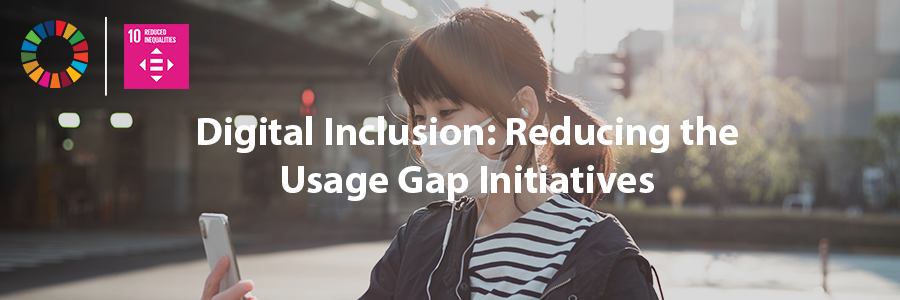
In order to breach the digital divide and make it easier for people to be able to use and take advantage of the benefits of mobile internet, the mobile industry in partnership with wider vertical sectors, governments and civil society organisations will need to address the key barriers to mobile internet adoption and use.
Of paramount importance is creating an enabling environment that works to reduce the barriers to mobile internet adoption and leverages the full power of the mobile internet to engage more citizens and further drive digital inclusion.
Below are informative use cases showcasing the power of mobile industry and public partnerships in addressing digital inclusion.

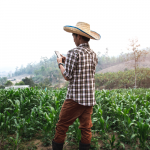
Single parent families
There are 1.64 million single parent families living in Canada. Of those, 21 per cent of single mothers and 7 per cent of single fathers raise their children in poverty. Of the total amount of poverty-stricken families in the country, 42 per cent cannot afford internet access. Working with the Governments of British Columbia and Alberta, mobile operator Telus has launched ‘Internet For Good’, a first of its kind initiative in Canada. Now, low-income single parent families can receive high speed broadband with 350 GB of data for less than 10 dollars a month. Telus has reached 15,000 one-parent families in Alberta and 18,000 single parent families in British Columbia with a view to expand the program to include other low-income segments of the population.
Resources
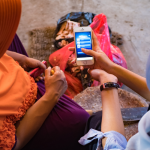
Smartphone loans
In Bangladesh, Robi Axiata partnered with Bank Asia and Cignifi to launch Joyeeta, a monthly smartphone bundle programme with preferential rates for women customers. Robi works with big data analytics partner Cignifi to identify suitable credit-worth customers for the Joyeeta offer. Pre-selected women are able to purchase the smartphone handset and a voice, data and SMS bundle for an attractive monthly instalment without any credit or deposit. Female customers are charged BDT 499 ($USD 5.60) per month over 15 months, whereas male customers are charged BDT 599 ($USD 6.80) per month over 12 months and require a minimum 20 per cent deposit.
Through the Joyeeta programme, Robi aims to double the number of female subscribers who use mobile data services, to reach half a million devices.
Resources
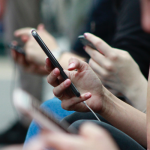
Affordable 4G devices
In Kenya, Safaricom PLC partnered with Google to launch Maisha ni Digital (‘Life is digital’), a campaign which aims to drive access to smartphones and internet through subsidized low cost 4G devices (the Neon range).
Resources
Affordable smartphone in Pakistan: To improve digital access, Jazz has launched Jazz Digit 4G. While Pakistan boasts having some of the cheapest tariff rates for voice and data, the main barrier to internet has been the affordability of smartphones. To help address this barrier Jazz has partnered with KaiOS Technologies to release the Jazz Digit 4G smart feature phone. It is the most affordable smart feature phone on the global market, at a down payment of just US$ 12 (PKR 1800). The customer is required to sign up for a one-year service with Jazz at an extremely affordable US$2/month which includes 1,000 minutes, 1000MB data, free SMS and free calling to doctors along with unlimited Facebook and WhatsApp for the first 3 months.
Resources
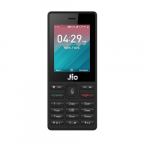
The JioPhone
In India, Reliance Jio launched the JioPhone – a 4G handset available for less than $10. By launching this LTE-enabled smart feature phone, it has addressed one of the main barriers to internet access for women in India (affordability), selling 100 million devices in 2 years.
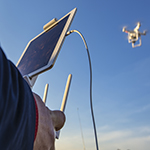
Affordable Broadband
Orange: Coup de Pouce Offer
In France, 12 per cent of low-income households do not have home broadband. 5 million people live in social uncertainty and are digitally excluded.
The Orange offer, Coup de Pouce was developed in partnership with inclusion actors, such as associations in the Hauts-de-France region and the Action Tank “Entreprise et Pauvreté”. The scheme is based on joint action between Orange and local associations to support low-income households who do not have access to broadband at home. It offers fixed internet, up to 160 TV channels and unlimited fixed voice for 19,99€/month. Also, customers can purchase a good quality, recently reconditioned laptop for 175 €. Free training “Ateliers Numériques” is offered to teach them the first steps on the internet and how to protect their data.
Resources

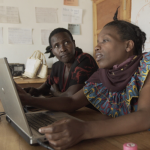
Digital skills Rwanda
In Rwanda, Tigo, in cooperation with the GSMA, launched the Mobile Internet Skills Training Toolkit (MISTT) in June 2017. Spread across 11 of Rwanda’s 30 districts, the project aimed to improve digital literacy amongst Tigo’s customer base.
The scheme has experienced rapid and radical success. Over the three months’ pilot 300 Points of Activation (POA) trained 80,000 customers and 77 per cent of them increased their data usage following training.
Resources
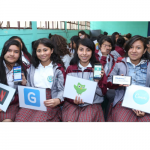
Empowering girls
In Guatemala, Tigo and an organisation dedicated to empowering women through technology called Sheva believe an essential way to support and protect girls and women is by training them to use mobile tools to increase their opportunities and improve their lives. ‘Mujeres Conectadas’, which means ‘Connected Women’, was launched in 2018. Mujeres Conectadas has trained more than 20,800 Guatemalan girls and women.
The Conectadas Project is an innovative approach to deliver the Mobile Internet Skills Training Toolkit (MISTT), and empower women in Guatemala.
Resources
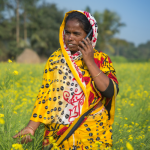
Digital skills Bangladesh
In Bangladesh, 87 per cent of the population use mobile. Yet, only 25 per cent of them use mobile internet. A key reason for this is a lack of basic digital skills. With support from the GSMA, Banglalink deployed the Mobile Internet Skills Training Toolkit (MISTT) to tackle this barrier to mobile internet adoption.
By using a force of 3,200 sales agents, Banglalink trained over 117,000 customers over three months. After these three months, amongst customers who were trained, there was a 228 per cent increase in mobile internet usage.
Resources
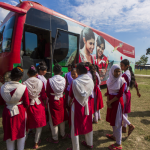
Digital Bus
Due to social norms in Bangladesh, many women do not enjoy the same freedoms and benefits as men, limiting opportunities for education and employment.
The ICT Division of the Bangladeshi Government, working with mobile network operator Robi Axiata and Huawei, had a vision to empower rural girls and women with the digital skills they would need to build a successful future career. The Digital Training Bus program is providing mobile digital training to over 63,000 women and girls in rural areas.
Resources

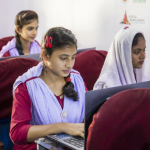
Mobile Internet for Women
Mobile services and applications are sometimes criticised for focusing on men’s priorities and paying too little attention to women’s needs. The perceived lack of relevance and useful content is an important barrier to mobile ownership and mobile internet use for women in low-and middle-income countries.
Dialog’s interactive app Yeheli, was launched in March 2018. Yeheli, meaning female friend, is Sri Lanka’s first-ever personalised and interactive web-based service dedicated to women’s health and wellbeing. This app allows users to ask questions anonymously in three different languages, Sinhala, Tamil and English, and to receive bespoke answers from experts.
Resources
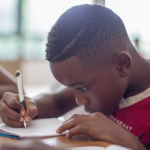
Personalised education
In Indonesia, Ruangguru received a grant from the GSMA Ecosystem Accelerator Innovation Fund in April 2017 to launch an online marketplace for personalised education where teachers and tutors generate content, and students access content for free or request personalised advice for a fee.
Resources
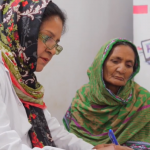
Health information
In Pakistan, Sehat Kahani connects female homebased doctors to communities where people lack access to quality health care using video consultation through intermediaries such as nurses, community health workers and midwives. Sehat Kahani received a grant from the GSMA Ecosystem Accelerator Innovation Fund in February 2018 to deploy the health technology in six clinics that support 120 community health workers. Sehat Kahani also developed a mobile and web-based telemedicine solution that gives users direct access to virtual consultations, as well as general preventative mental health information.
Resources
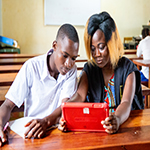
Access to affordable online education
Pass Orange Edu
In the Democratic Republic of Congo (DRC), the “Pass Orange Edu” gives students access to quality online content from the best international universities and training centres. Local partners also offer specialised training in business efficiency and entrepreneurship. The Pass includes 100 MB of mobile internet, valid for 24 hours. The costs are very affordable, 10 units at $0.10, which is ten times cheaper than a generalist pass.
The Orange Edu Pass has also been extended to primary and secondary school classes, giving access to courses corresponding to national educational programs and validated by teaching professionals in Burkina Faso, Senegal, Guinea and Mali, DRC.
Covid-19: Ensuring the continuity of the courses thanks to the Pass Orange Edu
To enable children and students to continue their studies as long as possible, the Orange Edu Pass has been made free during the coronavirus epidemic in 2020, in almost all countries where Orange is an operator.
Resources

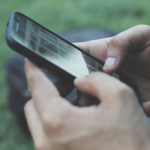
Nuestro Lugar Argentina
In Argentina, the mobile phone is the most common way of surfing the Internet among young people. Mobile operator Telecom Argentina decided to create a space online where kids could be taught how to use the Internet responsibly.
Nuestro Lugar, which means ‘Our place’, is an online hub specially designed to appeal to kids whilst still educating them on serious issues. Through interactive games, animated videos, comic strips and stand up comedy children are taught a whole range of skills to protect their online experience such as how to surf the web safely, change their social network privacy settings, the meaning of grooming and cyberbullying and how to behave in certain situations. There have been over 200 workshops in more than 30 Argentine cities, training over 13,000 students and 2,000 teachers.
Resources
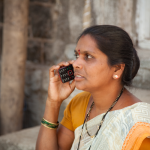
Female safety India
In 2018, Vodafone Idea launched ‘Sakhi’ across India, an exclusive safety service for women, focused on giving them the confidence to live life fearlessly.
Vodafone Sakhi’s features include emergency alerts which send your location to your emergency contacts, emergency balance and private number recharge. Millions of women use this service.
Resources
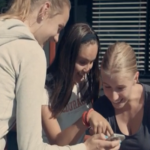
Fighting online hate
Mobile operator AT&T in the United States wanted to help young people deal with cyberbullying. Its #LaterHaters initiative encourages teenagers to use positivity in their digital spaces and stand up to online hate.The campaign includes a microsite and extensive social media content with online influencers helping to engage young people. Apps and other tools about privacy and safety are recommended, including lessons about cyberbullying, hate speech and fake news that were developed in collaboration with Common Sense Media.
US: #LaterHaters has been well received by teens. Millions have viewed the content, including more than 12.6 million Snapchat impressions, and 8,000+ people have signed an online pledge to stop online hate.
Resources
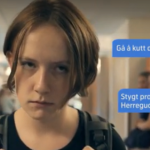
Cyberbullying
Norway has a vision of zero bullying, both offline and online. To support this and to help close the digital gap between generations, Telenor partners with the Norwegian Media Authority, the Kids and Media NGO and the Red Cross child helpline to run an outreach programme called Bruk Hue.
Bruk Hue addresses cyberbullying and online safety – its core messages for young people include be smart, be kind, show respect and have fun. It also teaches parents about the platforms and apps their children use and how to encourage positive and safe behaviour online. Since 2009, Bruk Hue has visited 1,200 schools, reaching 290,000 students and 60,000 parents.
Resources
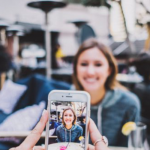
Reporting online abuse
It is vital that young people have access to services that help protect them from cyberbullying, sexual exploitation and other forms of abuse that take place online. Telekom Romania (part of Deutsche Telekom) supports an application called HappyGraff so that children and teenagers can report online concerns and access support services.
HappyGraff includes a free helpline and online chat service, run in collaboration with Asociaţia Telefonul Copilului (the Romanian children’s telephone association). Young people can report abuse, including cyberbullying and online grooming, as well as potentially illegal content.
Resources

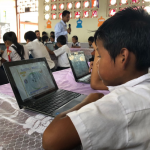
Supporting education
With over 600,000 Syrian refugees in Jordan, approximately 1 in 10 being children who are not in school, access to education is a challenge.
Orange Jordan have created a solution, ‘Zidni Elman’, a self-learning app for a smartphone or tablet that means the students can study at their own pace without having to be in school or even have a teacher with them. This flexibility is important, because one of the biggest challenges of teaching refugee children is the varying age and education levels in the same classroom. Orange have donated thousands of free tablets to refugee centres, with education content designed around the Jordanian curriculum to help the students integrate into the country’s public school system. Currently more than 20,000 young Syrian refugees are benefitting from Zedni Elman in 146 UNICEF refugee centres in Jordan.
Resources
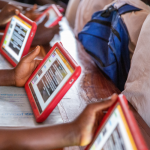
Instant Network School
Nyarugusu is Tanzania’s largest refugee camp and the fifth largest in the world. In 2018 it was home to over 150,000 displaced people. The average stay of a child in a refugee camp is 17 years. Of the 68 million displaced people on the planet, over 50 per cent of them are children.
Vodafone’s Instant Network School’s Programme brings a unique and innovative educational solution to Nyarugusu with their Instant Classroom, otherwise known as the ‘classroom in a box’.
Easy to charge, store and transport, each Instant Classroom is equipped with a laptop, 25 tablets pre-loaded with educational software, a projector, a speaker and a hotspot modem with 3G connectivity.
As of 2018 there are 31 Vodafone Instant Network Schools in 7 refugee camps in Tanzania, Kenya, South Sudan and the Democratic Republic of Congo, benefitting over 66,000 students across the African continent.
Resources
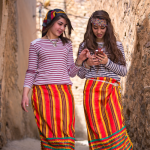
Digital identity
Proof of identity (digitally) is increasingly a prerequisite for citizens to become digital participants in the new digital economy, including being able to access mobile services. In short, digital identity is key for digital inclusion. Over a billion people around the world still lack formal identification. The majority are women, girls, people who are poor or live in remote areas and forcibly displaced persons in Africa and Asia. Mobile can help governments close the identity gap, in particular by supporting efforts to enrol more people into a civil registration or national ID programmes. For example, digital birth registration initiatives by Telenor Pakistan and Tigo Tanzania, demonstrated how leveraging the mobile agent network and a simple SMS interface or smartphone app could enable parents and authorised community members such as health workers, teachers, education staff and/or medical staff in health facilities, etc., to report births in their communities.
Resources
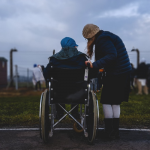
Supporting persons with disabilities
In many parts of the world, persons with disabilities have limited access to information and communication technologies (ICT). Digital innovations can bridge the access gap and promote the inclusion of persons with disabilities.
Mobile phones have a great potential to empower persons with disabilities and enable access to basic services, mostly inaccessible to them, such as education, employment, and even entertainment.
In Turkey, Turkcell offers ‘My Dream Companion’, a platform that makes information and entertainment more accessible for persons with visual impairment. By designing a fully accessible app, users have access to the latest news, audio books and other useful information such as weather updates and transport recommendations. The app also offers indoor navigation for some public places such as shopping centres. In addition, Turkcell also offers a ‘Visual Customer Service’ that provides services in sign language to customers with hearing impairment for free.
Resources